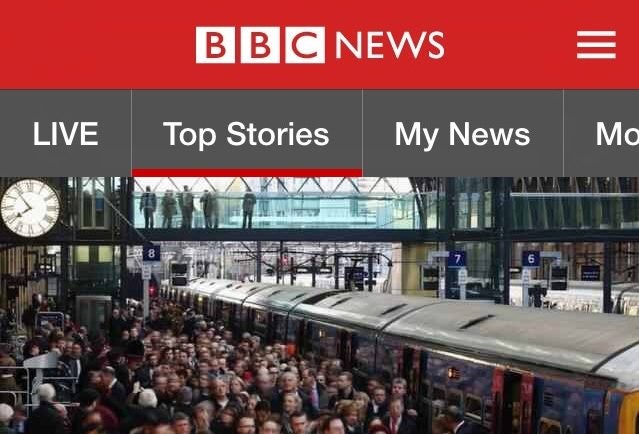
The BBC is winning the battle for breaking news alerts on mobile phones, with 63 per cent of those who choose to receive them choosing the corporation.
The findings have been published by Reuters Institute for the Study of Journalism in a report titled News Alerts and the Battle for the Lockscreen written by former BBC world editor Nic Newman.
The report said the preference for breaking news alerts was “partly because this makes up a significant proportion of alerts sent but also because people are generally prepared to wait to catch up on less time-sensitive news”.
Newman’s report is based on a YouGov survey of 7,577 smartphone users across the UK, USA, Germany and Taiwan carried out online between 26 September and 10 October this year.
In-depth and background interviews with smartphone users also informed the report. Of the total number surveyed, 1,797 were from the UK.
In the UK, 63 per cent of those using news alerts choose to receive them from BBC News. However, only a quarter (27 per cent) of smartphone users opted to receive news alerts at all.
When the choice to accept alerts from a new app is offered, 23 per cent of UK smartphone users agree, the research found.
News and information was found to be the most important category for mobile alerts after personal communications, social networks and productivity tools, the report showed.
Overall, those surveyed clicked on a news alert about half the time.
The report said: “[Smartphone users] are happy to receive ‘a few too many’ alerts (so they don’t miss stories) in the knowledge that they can easily ignore them or swipe them away.”
More than two-thirds of those receiving news alerts (72 per cent) said they valued the notifications they receive, with many seeing news alerts “as a critical part of the news app proposition”, the report said.
As for the tone of alerts, the report found that serious news alerts “were valued when they were delivered quickly using straightforward language”.
“Clickbait headlines and emojis were strongly disliked in this context,” the report said, but it noted “far more latitude for creativity with feature content, lifestyle, entertainment, sport, and technology.”
Younger people tend to get more news alerts than older smartphone users, according to Newman.
Most mobile notifications currently come from news brands rather than aggregators or platforms such as Facebook, said the report.
But, it added: “Despite this, the recent launch of alerts through Apple News is already starting to change this dynamic for iPhone users and Facebook Messenger is offering new opportunities for anyone to use this platform to deliver messaging to the lockscreen.”
Those surveyed said they were frustrated with the lack of personalised options.
“Beyond breaking news, there are significant unmet needs for more relevant alerts around passions and work niches,” said the report.
“Despite this, to date few people had personalised their alerts when the option was available and a substantial minority didn’t know how to find or change settings.”
Of those surveyed, around four in ten (38 per cent) of those not getting news alerts said they have “no interest” in taking them in the future.
About a third (31 per cent) said they might use them if more personally relevant alerts could be sent, while 36 per cent said they might use them if they could control the number and timing of alerts.
The report warns there is “clearly a danger” of a “consumer backlash in the future” if the volume of news alerts increases.
“Publishers should focus as a matter of urgency on improving the relevance of their alerts through a combination of passive personalisation and more transparent and explicit controls,” it said.
Email pged@pressgazette.co.uk to point out mistakes, provide story tips or send in a letter for publication on our "Letters Page" blog
